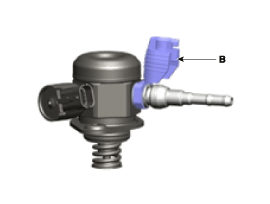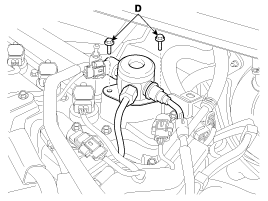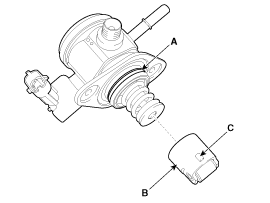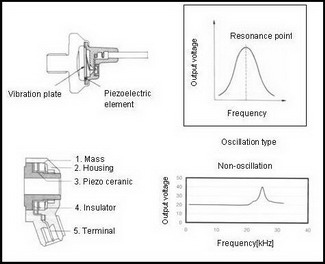Hi. Anyone else having this issue? I only have 4000k and have had to get my oil changed twice in the last two weeks because it had over 1 litre of gas in the oil. They have replaced the throddle body and that didn't make a difference. They are ordering a fuel pump now. I am feeling I totally got a lemon and cannot imagine the damage it has already done to my vehicle.

Tara Nelson
Gas in oil
There will be some oil dilution with fuel as in all GDI engines.
However, who told you there was over a liter of gas in the oil? A lab would have to test the oil for fuel dilution to even begin to determine you had this much fuel in the oil. Dealers don't have this capability, nor do any businesses that specialize in oil services for that matter.
I smell a rat here! . Not you per se, just the circumstances as you are describing them.
Who replaced the throttle body?
What prompted you to get the oil changed before the normal service?
Was the Kona running badly?
We need to know the whole story not part of it, as there is obviously more to this.
Blessings and Peace
However, who told you there was over a liter of gas in the oil? A lab would have to test the oil for fuel dilution to even begin to determine you had this much fuel in the oil. Dealers don't have this capability, nor do any businesses that specialize in oil services for that matter.
I smell a rat here! . Not you per se, just the circumstances as you are describing them.
Who replaced the throttle body?
What prompted you to get the oil changed before the normal service?
Was the Kona running badly?
We need to know the whole story not part of it, as there is obviously more to this.
Blessings and Peace
No offense to anyone including the OP but;
We're not going to find out until the OP explains the entire circumstances. The OP hasn't said, who did the oil changes or replaced the throttle body. I'm not going to assume anything. We collectively, aren't able to diagnosis anything, especially without hearing the entire story. Even then it's simply a shot in the dark. So right now, it's nothing but a hypothetical discussion.
Rings seat in the first 500 miles. Oil and fuel mix (are soluble) in the crankcase just as they would be if you mixed them in a jar. So there is no way for anyone, including the dealer to determine there was 1 liter of fuel in the oil. It must be analyzed by a lab, to determine the percentage of fuel dilution to oil, from oil in the crankcase. It won't be separated or unmixed with the oil in the crankcase. It would take more than two weeks to send off the oil sample and have it returned after the Lab analysis.
There is no mention of a compression check or anything else to determine a possible problem. Hyundai mechanics are specifically trained to tell the service rep exactly what they have checked, replaced of repaired, so it can be passed along to the owner. I'm not going to add or suggest anything towards this issue. Hopefully, the owner will provide a complete description of the entire circumstances.
So, until we know who and how they determined this. it's completely moot. This story and circumstance is simply, a wild goose chase at the moment. I can have empathy for anyone however, I'm choosing to wait for reasons of skepticism. I'd like to hear the whole explanation.
Blessings and Peace
We're not going to find out until the OP explains the entire circumstances. The OP hasn't said, who did the oil changes or replaced the throttle body. I'm not going to assume anything. We collectively, aren't able to diagnosis anything, especially without hearing the entire story. Even then it's simply a shot in the dark. So right now, it's nothing but a hypothetical discussion.
Rings seat in the first 500 miles. Oil and fuel mix (are soluble) in the crankcase just as they would be if you mixed them in a jar. So there is no way for anyone, including the dealer to determine there was 1 liter of fuel in the oil. It must be analyzed by a lab, to determine the percentage of fuel dilution to oil, from oil in the crankcase. It won't be separated or unmixed with the oil in the crankcase. It would take more than two weeks to send off the oil sample and have it returned after the Lab analysis.
There is no mention of a compression check or anything else to determine a possible problem. Hyundai mechanics are specifically trained to tell the service rep exactly what they have checked, replaced of repaired, so it can be passed along to the owner. I'm not going to add or suggest anything towards this issue. Hopefully, the owner will provide a complete description of the entire circumstances.
So, until we know who and how they determined this. it's completely moot. This story and circumstance is simply, a wild goose chase at the moment. I can have empathy for anyone however, I'm choosing to wait for reasons of skepticism. I'd like to hear the whole explanation.
Blessings and Peace



A though just occurred to me; It might if oil/fuel is passing thru the roller tappet & o-ring that seals the high pressure pump.
So fuel might be leaking down thru the pump or oil being forced thru the injection system. I believe it might be the prior though.
However all this this is simply speculation. Either way, take it to another competent dealership, service department.
Beyond this, there is no way the dealership is able to tell that there is 1 liter of fuel in the oil.
Blessings and Peace
Yes sir and thanks for sharing. The rest, I agree with also.
The Kona is not a vehicle to be lugged around for very long, especially on constant short stop and go trips. Don't let the 1.6T idle for long periods in the cold either. You'll develop more fuel/oil dilution as a result. Kick that puppy in the arse, every chance you have on the open road. I'm not advocating speeding or driving unsafe. Just make sure you clean it out regularly with full throttle bursts to speed limits on the right roads and during the right conditions.
I'm suggesting you also run premium fuels with the 11:1 compression ratio the engine puts out. Higher temp combustion equals = less fuel waste to be recycled thru the PCV to re-burnt. The build up on the intake valves can be thwarted somewhat, if you don't baby the motor all the time. Also utilize either Chevron Techron or similar fuel additive at least ever 1000 miles. The engine will run better over the long haul.
Blessings and Peace
The Kona is not a vehicle to be lugged around for very long, especially on constant short stop and go trips. Don't let the 1.6T idle for long periods in the cold either. You'll develop more fuel/oil dilution as a result. Kick that puppy in the arse, every chance you have on the open road. I'm not advocating speeding or driving unsafe. Just make sure you clean it out regularly with full throttle bursts to speed limits on the right roads and during the right conditions.
I'm suggesting you also run premium fuels with the 11:1 compression ratio the engine puts out. Higher temp combustion equals = less fuel waste to be recycled thru the PCV to re-burnt. The build up on the intake valves can be thwarted somewhat, if you don't baby the motor all the time. Also utilize either Chevron Techron or similar fuel additive at least ever 1000 miles. The engine will run better over the long haul.
Blessings and Peace
Well I know what works in the Kona well. Detergents depend upon if you're using top tier fuel all the time. If you want to keep your fuel injectors and intake valves clean, then utilize a fuel additive.Hyundai suggests otherwise.. using premium is a waste since the car is designed and tuned for regular.. it does not take advantage of timing for higher octane fuels.. also adding fuel injector cleaner that often is totally unnecessary.. there’s plenty of detergents already in the fuel.. again.. according to Hyundai.. but what do they know ..
Frankly I'm not concerned with what Hyundai says, regarding fuel. Dealers do add a fuel additive every 6000 miles during services, re-labeled (Chevron Techron) as a matter of fact. They will also recommend a fuel injection cleaning at around 25K.
It is and was a suggestion and you're welcome to do what ever your little hearts desire. The additional cost per tank full, is nominal.
From my experience with high compression GDI's, premium is always the better option. We ran nothing but premium in our Genesis G80 5.0 @11:5.1 and got exceptional fuel mileage in combined traffic of 26-28 mpg. We are running premium in the N, which is required and the Accent. Both are getting exceptional mileage and are under 200 miles from new. The Accent on winter blend is averaging 37 mpg and is tight as Dicks hatband right now.:wink:
My sons Kia Rio 1.6 Gamma N/A with 26K miles is averaging 34 on regular in comparison. So once again, the above is a suggestion. You can do what you think is right for you. I'll continue to do what works for us.:smile:
Note: I apologize, I did say the Kona has an 11:1 compressions and I stand corrected. I was thinking about our Genesis when I commented. However any 10.0:1 compression ratio is able to run high test fuel, which burn slower than regular grades of fuel. High test burns more efficiently at any compression ratio from 10.0:1 and above. Add a turbocharger which increases combustion temps and it becomes an even more acceptable fuel. This has been common knowledge for decade among hot-rodders, engine builders, racing teams of all kinds, as well as airplane engine manufactures as well. I've commented about this before in other threads. Thanks Mania1 for reminding me.:wink:
Blessings and Peace
Ham too low a grade fuel or octane can and will cause pinging and detonation. Quality of fuel will do this also. ECU's work within specific designed maps and fuel tables. They do not have a learning capacity. If you are outside those parameters, it only has the ability to adjust within the specific parameters which are loaded in the ECU.No motor mind, but if your engine is pinging, it has issues ! OEM somehow is messed up, sensor, computer, program, something ! Dealership needs to fix it, not your idea of higher octane and injector cleaner; to me this just gives them more reason to void a warranty issue down the road. Not arguing your points and facts, but it is not the fix, has to be control system of fuel. Ping to me is excessive fuel ? If so, it is a problem. Best of luck.
Countless times, I've heard new vehicles pinging and detonating because of non top tier regular fuel use. It's normally when traveling uphill on mountain roads under load. It happens allot out here at altitude and people just aren't aware. The fastest cure to eliminate it, is to increase the grade and octane of the fuel. Read a little about pinging and detonation, then just be aware of it, especially under load (under acceleration) towing or not.
Blessings and Peace
Yes, you must be absolutely right. Whatever you say has got to be correct, you seem to be all knowing. Have fun with that.:wink:LOL... of course you do... you have fun with that and your anecdotal information..
Meanwhile... I will use the fuel the car was designed to use, regular... I prefer not to waste resources and time
On additives that aren’t needed.. They have their place and use.. but certainly not the way you described..
What was that you said about being all knowing...... Looks like it came back home to rest.:wink:
Yes, you must be absolutely right. Whatever you say has got to be correct, you seem to be all knowing. Have fun with that.:wink:LOL... of course you do... you have fun with that and your anecdotal information..
Meanwhile... I will use the fuel the car was designed to use, regular... I prefer not to waste resources and time
On additives that aren’t needed.. They have their place and use.. but certainly not the way you described..
What was that you said about being all knowing...... Looks like it came back home to rest.:wink:
https://www.cars.com/auto-repair/glossary/knock-sensor/ .That control over the injectors, coupled with the sensors in the block designed to detect knock, is how knock is
Eliminated.. a slight ping is different from a knock as well. The engine is at its peak efficiency just before it pings..
A slight ping is not the same as detonation.. I hear some odd noises between the DCT operation and all the valves and solenoid operation of the variable intake runners, egr system, etc.. from time to time.. but all healthy sounds.. and
Not a hint of knock or ping.. good stuff! Some people on here need to put a bit of faith in the engineers and the systems in place to protect the engine...
Knock sensors are mechanical and are attached to the block, not in it or built in them. You can't hear the operation of an EGR Valve working either, it's operated by vacuum. LMAO Of you can always write it off to dementia. People generally afflicted, start hearing things that aren't there and it can happen as early 30's 40's & 50's. So no offense, just having a little fun!:grin:
Of course your personal commented information is a bit "anecdotal," (as you say) is a bit flawed based upon factual information but hey who's counting. Oh and faith, (trust) in mans inventions LMAO, not a chance, they're always flawed in some way or another. That's kind of like your new found bud, faith can be misplaced and happens all the time.
Blessings and Peace
Just bad info ,all they way around!:smile: Read below; GDI injectors, on the other hand, can only inject fuel during the intake and compression stroke. Tis comes to you free, from RICK!It may not be detonation your hearing. Funny thing about GDI engines, fuel can be injected into the cylinder at any time. Sometimes on the intake stoke, and sometimes on the compression stroke or even multiple injections during the same firing event. The ECU does a couple of things, it can advance or retard the timing, it can change the timing of fuel injection, it can change the time the injector is open, and can change the lift pump pulse width modulation to vary output pressure, as well as changing the signal for the high pressure pumps pwm by way of the solenoid on the side of the high pressure pump. One of the oddities is that lack of a fuel temp sensor in the lift pump, especially odd for a vehicle without a return line.
Carbon buildup in Gasoline Direct Injection engines ? Ricks Free Auto Repair Advice Ricks Free Auto Repair Advice | Automotive Repair Tips and How-To,
Second paragraph, third sentence.:wink: Ah the 1.6T Gamma is GDI last time I checked and not an MFI. So, you might at least attempt to first comprehend and then get your facts straight when reading or quoting off the internet.:wink: I'm just saying......But keep trying.:smile:
You and your new all knowing bud, ought to get together for a bit of brainstorming and contemplation.(Om mani padme om). Might help, you never know!:grin:
Yes, you must be absolutely right. Whatever you say has got to be correct, you seem to be all knowing. Have fun with that.:wink:LOL... of course you do... you have fun with that and your anecdotal information..
Meanwhile... I will use the fuel the car was designed to use, regular... I prefer not to waste resources and time
On additives that aren’t needed.. They have their place and use.. but certainly not the way you described..
What was that you said about being all knowing...... Looks like it came back home to rest.:wink:
Yes, you must be absolutely right. Whatever you say has got to be correct, you seem to be all knowing. Have fun with that.:wink:LOL... of course you do... you have fun with that and your anecdotal information..
Meanwhile... I will use the fuel the car was designed to use, regular... I prefer not to waste resources and time
On additives that aren’t needed.. They have their place and use.. but certainly not the way you described..
What was that you said about being all knowing...... Looks like it came back home to rest.:wink:
https://www.cars.com/auto-repair/glossary/knock-sensor/ .That control over the injectors, coupled with the sensors in the block designed to detect knock, is how knock is
Eliminated.. a slight ping is different from a knock as well. The engine is at its peak efficiency just before it pings..
A slight ping is not the same as detonation.. I hear some odd noises between the DCT operation and all the valves and solenoid operation of the variable intake runners, egr system, etc.. from time to time.. but all healthy sounds.. and
Not a hint of knock or ping.. good stuff! Some people on here need to put a bit of faith in the engineers and the systems in place to protect the engine...
Knock sensors are mechanical and are attached to the block, not in it or built in them. You can't hear the operation of an EGR Valve working either, it's operated by vacuum. Of you can always write it off to dementia. People generally afflicted, start hearing things that aren't there and it can happen as early 30's 40's & 50's. So no offense, just having a little fun!:grin:
Blessings and Peace
No kidding! Glad you can finally read and quote it directly. Heres a video; oh darn I'm plagiarizing or is it something truthful? I'll let you decide.............no on second thought it's truthful. A knock sensor is actually; electro-mechanical to put it simply. But then this takes the fun out of all the plagiarizing you just managed! LMAOKnock sensors are not mechanical per say. It does use mechanical binding to hold it to the block, but it uses a piezoelectric sensor, that produces voltage when it vibrates. The voltage signal, when it reaches a predetermined point (set by manufacturer of the engine), trips a specific set of rules in the ecu. The ECU checks off those rules and signals other parts of the engine to change running condition.![Image]()
![Image]()
![Image]()
https://www.hyundaikonaforum.com/fo...-2018-hyundai-kona-general-discussion/1994-kona-ultimate-exhaust-upgrade-2.html (Post #18) LMAO:grin: But I'm a fan actually! Have fun with that,(UnKnown Kona)!!Personally not a fan of plagiarism,
Keep trying, one day you'll understand but maybe your all knowing new friend can tell you. He seems to know everything........not! LMAO
Hurry along now and waste some more time trying to look up more stuff on the internet. Things you're not really aware of without looking. LMAO
Blessings and Peace
Absolutely!!
I like the "Salad Supremacy" comment! Have to remember that one.:grin: Maybe we can work that one into the gas in the oil problem.:wink: Salad.....oil........maybe!:smile:
Just a funny; Ha I got a mention, thanks @BlackBetty:grin: LOL
Blessings and Peace
Just a funny; Ha I got a mention, thanks @BlackBetty:grin: LOL
Blessings and Peace
Yes agreed, it might be, but we haven't seen her come back.
Blessings and Peace
Blessings and Peace
Thanks Mainia1, some people, have no idea what detonation is, let alone to what it sounds like. Valve clatter is not pinging either. Pinging and detonation (engine knocking) are different and caused by the same issues.Nope, it is detonation, I have spent years tuning 12:0 to 1 engines on pump gas that had zero ignition technology on all different types of cars. I know the sound well and every elevation of octane reduced the sound. It is a no brainer.
This is a two good explanations; https://www.enginelabs.com/news/detonation-what-causes-it-and-how-to-control-it-using-efi/
https://auto.howstuffworks.com/engine-knock1.htm
Blessings and Peace
-
?
-
?
-
?
-
?
-
?
-
?
-
?
-
?
-
?
-
?
-
?
-
?
-
?
-
?
-
?
-
?
-
?
-
?
-
?
-
?
- posts
- 49K
- members
- 16K
- Since
- 2017
Hyundai Kona Forum - the best place to talk about the new Hyundai Kona, the new city SUV and its upcoming Kia twin!






